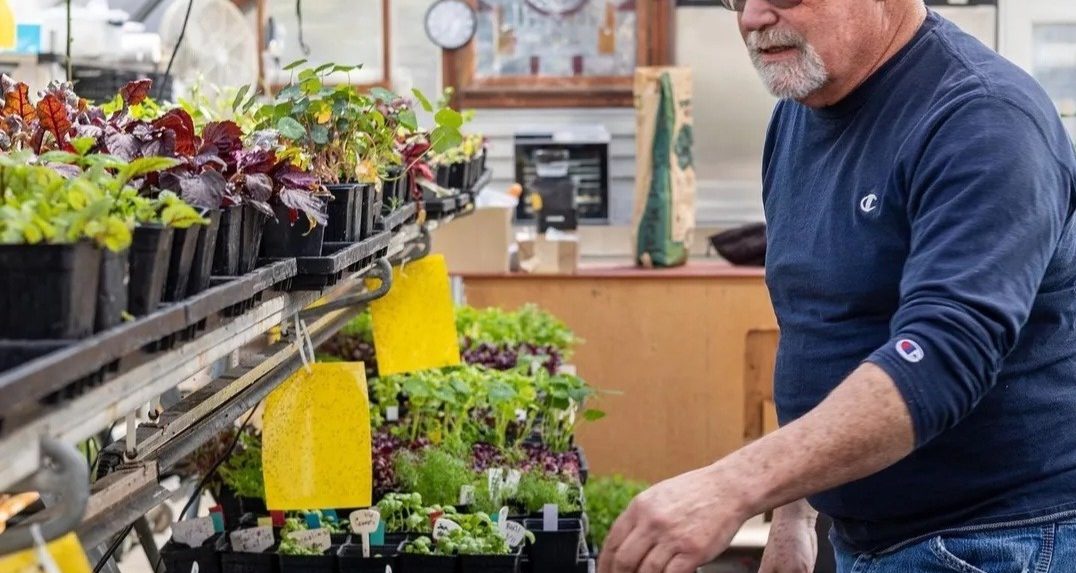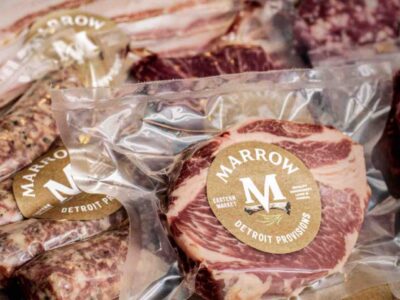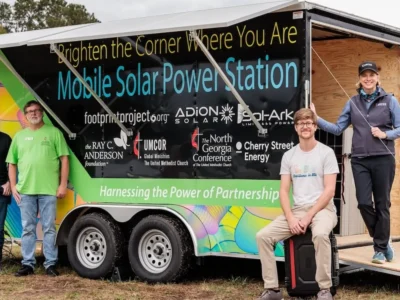Jeff Middleton and Crystal Spencer had more than sustainable agriculture on their minds when they opened Boise Vertical Farm in 2018. Their hydroponic operation was a unique opportunity to connect with the people of Boise, ID. They actively take on employees with checkered records, particularly those who struggle with substance abuse. Their work in some of their employees’ lives is impactful.
Middleton met Spencer when he was going through his addiction recovery process. Spencer was the director of research at St. Luke’s Boise Medical Center, witnessing firsthand how addiction recovery is more than just battling an illness. It’s about trying to reacclimate to life but one surrounded by stigma.
After taking a trip with Middleton to Jackson, WY, to see the Vertical Harvest hydroponic farm in 2017, the two knew they had found a way to help others. They decided to open one that recruits addicts and the formerly incarcerated to give them a second chance.
Vertical Harvest employs people with physical and mental disabilities, so the two Idahoians wanted to follow a similar policy but one that was more personal to both. “When we see all this talent out there, and they can’t get reemployed, that’s a loss to the community,” Spencer said.
The two founders had a personal relationship with substance abuse. Middleton had worked in pharmaceuticals, but his addiction battle inspired him to get out of the industry. Meanwhile, Spencer lost her brother to alcoholism. They both felt that giving others in similar positions opportunities was greatly important.
“We have people who are relatives, parents, and the like who have people in their family who have had problems with drugs and alcohol that want to understand what addiction is all about, want to give back, want to help others,” Middleton said.
The employees typically come from the Idaho court system, but some volunteer simply to give back to the community. Some are recommended by judges or allowed to work at the farm as a jail time alternative.
“This is rewarding, and I love it, and I get to play with plants and be in dirt!” exclaimed Tiare Gunderson, a recovering addict who worked at the farm in 2021 while recently celebrating one year of sobriety. She says the support from Middleton and Spener is the crucial component to keep going to work every day and staying away from substances. “It’s a safe place for us to go to and just feel like we’re worth something again.”
The wholesome nature of Boise Vertical Farm doesn’t end with addiction support. The site grows various vegetables, mushrooms, and herbs in greenhouses and gardens that use hydroponic systems.
They are stacked vertically without using soil, simply a trickle-down effect of the water from irrigation. The process only uses 10% of the water that surface growing requires, saving gallons and acres of land. All the produce is sold at farmer’s markets or to restaurants in the area.
Two partner farms have opened in Boise, the Diamond V and Be Local Farms; the latter is an aquaponics operation where fish waste is used as a composting tool. It’s locally grown with sustainability and personal growth in mind.
Boise Vertical Farm has successfully taught the formerly incarcerated and those living with addiction how to apply themselves to a trade they’ve never worked on. The belief is that those who come to the site through the court system are better off because they will learn something about the planet and a career they might love. It’s more fulfilling than picking up trash along the highway.
“Our success rate as far as staying clean, and, you know, maintaining and being able to move on is way above 80%, 85%,” Middleton said. “They’ve been able to go out and talk to people and tell them what they’re doing … and they’ve been successful in getting work.”





 Copyright
2024
Root and Vine
Copyright
2024
Root and Vine